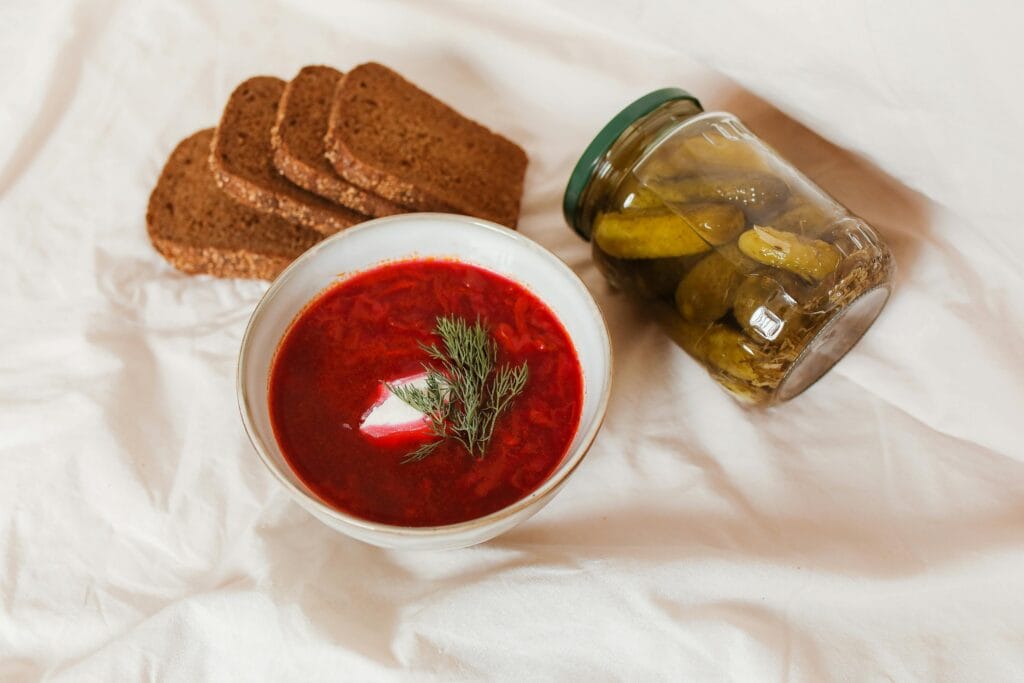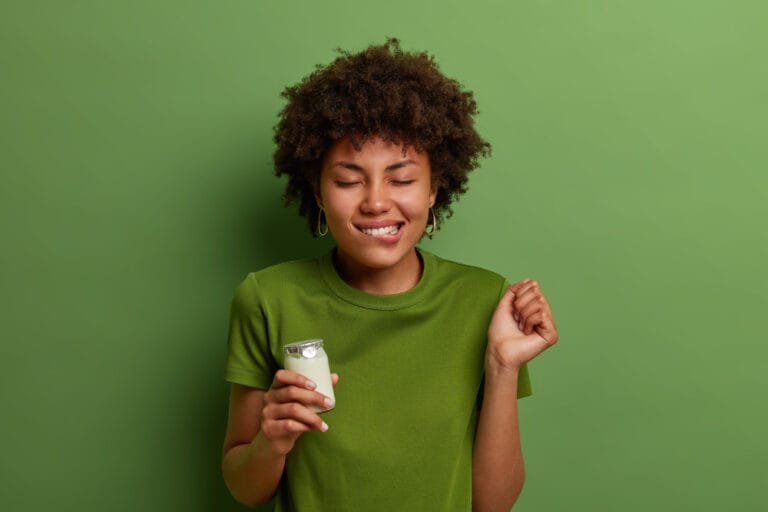FREE SHIPPING OVER $50
Eat Pickles Every Day? Here’s What It’s Really Doing to Your Gut

That crisp, tangy snap of a pickle is one of life’s simple pleasures. Whether you enjoy them alongside a sandwich, chopped into a salad, or straight out of the jar as a crunchy, low-calorie snack, the habit of reaching for a pickle daily is common. Many people believe they are doing their gut health a major favor, viewing the pickle as a simple, effective probiotic delivery system—a savory answer to yogurt or kefir.
However, the truth about what that daily pickle is actually doing to your digestive system is a little more complex than a simple “good for you” stamp. Not all pickles are created equal, and depending on how yours were made, the impact on your gut microbiome can swing dramatically from incredibly beneficial to surprisingly neutral, or even slightly detrimental due to hidden ingredients. We need to cut through the brine and figure out exactly what happens when you make pickles a part of your daily nutrition routine.
The Critical Distinction: Fermented vs. Vinegar Pickles
The most vital factor determining your pickle’s effect on your gut health is the method used to preserve it. This is where most people get tripped up at the grocery store. You must know the difference between traditional lacto-fermented pickles and the more common vinegar-brined pickles.
The Gut-Healing Power of Fermentation
When a cucumber is submerged in a simple saltwater brine and allowed to sit, the naturally occurring lactic acid bacteria on the vegetable begin a process called lacto-fermentation. These beneficial bacteria (mostly Lactobacillus species) consume the sugars in the cucumber and produce lactic acid, which acts as a natural preservative and gives the pickle its tangy flavor.
The major takeaway here is that these types of pickles contain live and active cultures, otherwise known as probiotics. When you consume a lacto-fermented pickle every day, you are essentially topping up your gut microbiome with an influx of beneficial bacteria. These probiotics can support a more diverse and balanced microbial community, which is strongly linked to improved digestion, enhanced nutrient absorption, and even better immune function. Eating the right type of pickle truly makes it a gut health hero.
The Neutral Territory of Vinegar Pickles
Unfortunately, the vast majority of shelf-stable pickles you find in the supermarket are vinegar pickles. These are cucumbers quickly preserved by heating them and submerging them in a solution of vinegar, water, salt, and often sugar and chemical preservatives.
While these pickles are delicious, crunchy, and low in calories, they offer little to no probiotic benefit for your gut. The vinegar itself is very acidic, and more importantly, the heat pasteurization process used to make them shelf-stable kills off any live, beneficial bacteria that may have been present. Therefore, if you eat these types of pickles daily, you are getting a tasty snack, but you are not actively improving your gut flora. You should always check the label: look for “fermented,” “unpasteurized,” or “contains live cultures” to ensure you are getting the real, probiotic-rich deal.
The Hidden Sodium Problem You Can’t Ignore
Regardless of the preservation method, nearly all pickles come with a significant catch: an extremely high sodium content. A large dill pickle can easily contain over 500 milligrams of sodium, which is a considerable percentage of the recommended daily limit for most adults.
If your daily pickle habit involves consuming high-sodium varieties, you must pay attention to the potential risks. Excessive sodium intake is famously linked to high blood pressure and an increased risk of heart issues. Furthermore, while the probiotics in fermented pickles are helpful, large amounts of salt might negatively affect the overall composition and diversity of your existing gut flora. Studies suggest that high dietary salt can sometimes reduce the population of certain beneficial bacteria.
Therefore, for a sustainable, healthy daily habit, you should carefully manage your sodium intake. If you cannot find low-sodium fermented pickles, consider rinsing your pickles before eating them to wash off some of the surface salt, or simply limit yourself to one pickle per day while monitoring your overall daily sodium count from all sources.
The Gut-Friendly Byproducts: Prebiotics and Organic Acids
When you choose lacto-fermented pickles, you are not just getting a dose of probiotics; you are also benefiting from the chemical byproducts of the fermentation process. These byproducts offer profound benefits for your digestive health and overall nutrition.
Lactic Acid and Short-Chain Fatty Acids
The lactic acid produced during fermentation helps lower the pH of your stomach and intestines. This lower pH environment is beneficial because it helps break down food more efficiently and prevents the growth of certain harmful, acid-sensitive bacteria. Furthermore, consuming fermented foods contributes to the production of Short-Chain Fatty Acids (SCFAs) in your colon. These SCFAs, particularly butyrate, are the primary energy source for the cells lining your colon, promoting a strong gut barrier and reducing inflammation. Effectively, the daily consumption of fermented pickles feeds both the good bacteria and the cells of your gut lining, making them a dual-action agent for a healthy system.
Increased Nutrient Bioavailability
Another clever trick that fermentation performs is increasing the bioavailability of nutrients. The fermentation process begins to break down complex carbohydrates and anti-nutrients (like phytic acid) found in the cucumber. This essentially pre-digests the vegetable, making the inherent vitamins and minerals much easier for your body to absorb. Thus, a fermented cucumber can deliver its nutrients more effectively than a raw one, supporting better nutrition absorption and contributing positively to your metabolism.
The Digestive Comfort Factor
Beyond the microbial benefits, a daily habit of eating fermented pickles can simply make your belly feel better. For individuals who frequently experience bloating or gas, incorporating probiotic-rich foods may bring noticeable relief.
The active probiotics help balance the ecosystem in the gut microbiome, which often means a reduction in gas-producing bacteria and a more regulated transit time. This is why many people who add fermented foods to their nutrition regimen report a significant improvement in overall digestive comfort and regularity. Moreover, the naturally high-water content of the cucumber and the brine helps with hydration, which is always essential for healthy bowel function. Remember, consistency is key; a daily, small serving of fermented pickles is more effective than a large, occasional binge.
Conclusion: Make Sure You’re Eating the Right Pickle
To summarize the impact of a daily pickle habit on your gut health, the answer depends entirely on the label. If your daily pickle is a conventional vinegar-brined variety, you are enjoying a low-calorie, flavorful, and crunchy snack that is largely neutral for your gut microbiome. You must watch the sodium content, but you are not significantly benefiting your gut flora.
If, however, you seek out and consume lacto-fermented pickles (found in the refrigerated section), you are making a powerful, positive choice for your digestive health. You are providing a steady source of probiotics, prebiotics, and SCFAs that support a healthy, diverse gut microbiome. Always prioritize the fermented kind, manage your sodium intake carefully, and enjoy that crisp snap knowing you are genuinely feeding your gut health with every bite.
Related Articles
- This Nut Butter Has the Same Protein as Peanut Butter—But Twice the Fiber and Way More Benefits
- Don’t Buy Probiotics: Eat This Underrated Vegetable Daily for Effortless Digestion
- Heal Your Gut Fast: 6 Probiotic Superfoods to Eat—And 4 That Wreck Your Microbiome
- Gastroenterologists Warn: These 15 ‘Healthy’ Foods Are Wrecking Your Gut
- Stop Mixing Chia Seeds With These 5 Foods—It Could Be Sabotaging Your Health Goals







